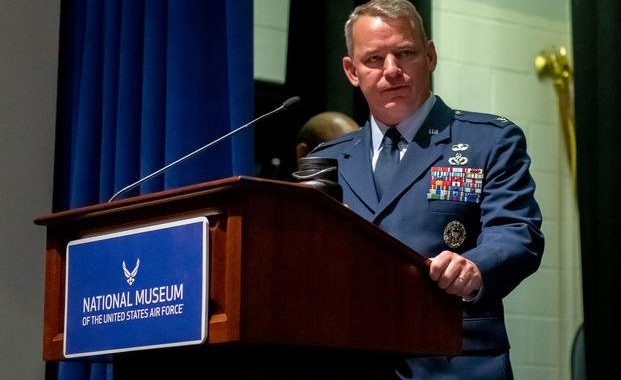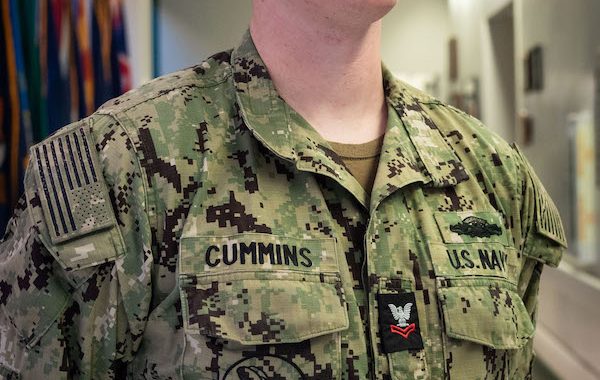Sleep Disorders Are Skyrocketing Among US Military Personnel, Study Finds
4 min read
A new study has found that serious sleep disorders are on the rise in the U.S. military — conditions that can affect readiness and cause short- and long-term physical and mental health problems for troops and veterans.
According to research from the University of Texas Health Science Center at San Antonio, insomnia diagnoses increased 45-fold, and obstructive sleep apnea rose 30-fold, among U.S. service members from 2005 to 2019.
The increases should concern military leaders and doctors as well as the Department of Veterans Affairs, which provides medical treatment for veterans with service-related conditions, said retired Army Col. (Dr.) Vincent Mysliwiec, a sleep expert and one of the study’s authors.
“A large percentage of military veterans have insomnia and sleep apnea. We’re trying to develop a better understanding of the factors that go into sleep disturbances that can develop into sleep disorders in the military,” he said.
Rates for insomnia across the services rose consistently beginning in 2005 and peaking in 2015 before dropping slightly. Sleep apnea diagnoses peaked in 2016, but remained higher than they had been previously, according to the research.
The highest rates for both disorders were found in the Army, with more cases diagnosed than expected; the Air Force, Navy and Marine Corpshad lower-than-expected rates. Yet all services saw increases.
Those most likely to be diagnosed with either disorder were married, male, White, age 40 or older, and higher-ranking enlisted soldiers.
“These findings are concerning because service members across the military branches are otherwise healthy and have similar physical requirements. Their sleep disorders developed and were diagnosed while they were in the military,”
“These findings are concerning because service members across the military branches are otherwise healthy and have similar physical requirements. Their sleep disorders developed and were diagnosed while they were in the military,” Mysliwiec said.
Female service members were diagnosed at much lower rates than men. That is not surprising for sleep apnea, which is diagnosed at lower rates in civilian women of military service age than it is in men, but was surprising for insomnia since women generally have a higher prevalence of that disorder, according to Mysliwiec.
“Insomnia is increasingly diagnosed in women veterans, thus the lower rate of insomnia diagnoses found in our study suggests that female service members are potentially underdiagnosed for this sleep disorder,” the researchers wrote. “This is a potentially alarming finding and one that warrants further study.”
For the study, the researchers searched the medical records of active-duty Army, Navy, Air Force and Marine personnel for the medical diagnostic codes for the two disorders.
While sleep disorders in the military are always a subject of interest, many studies have focused on a single service — mainly the Army — or were based on surveys.
This was the first study to look at diagnoses across the branches, with the exception of the Space Force, which didn’t exist at the time, and the Coast Guard, which falls under the Department of Homeland Security.
The authors noted that many factors may have contributed to the larger number of Army personnel receiving diagnoses, including that the service has higher rates of personnel who are overweight — a contributing factor to sleep apnea — and soldiers may have better access to medical centers with sleep disorder clinics.
The Army had the first servicewide education program regarding military-appropriate sleep practices, which may have made soldiers more aware of their sleeping habits and prompted them to seek medical care.
Study co-author Alan Peterson said that while deployments were not evaluated in the research, “previous research has shown a strong correlation between deployments and sleep disorders, and deployments combined with other chronic health conditions, such as post-traumatic stress disorder and traumatic brain injury.
“In the wars in Afghanistan and Iraq, there were longer and more frequent deployments between 2008 and 2012. The Army typically had the longest and most frequent deployments — 21 months — compared to 12 to 16 months for the other services,” Peterson said.
The researchers said the findings “open the door” to learning about the causes of these disorders in military personnel and advised military medical leadership to give further consideration to interventions, as well as enhanced insomnia screenings for female service members and more widespread screening for sleep apnea among Black troops.
Mysliwiec said he’d like to see more focus on healthy sleep habits and scheduling to ensure that service members don’t suffer from disrupted sleep or run the risk of developing a sleep disorder.
“There’s this perception that military personnel, in some way, shape or form, cause their sleep disorders. That’s just wrong,” he said. “‘Oh, they drink lots of caffeine. That causes their sleep disorders.’ Well, they drink lots of caffeine because they have to work 12-, 14-, 16-hour days and need to stay awake. They have to have a coping mechanism.
“There’s this perception that military personnel, in some way, shape or form, cause their sleep disorders. That’s just wrong,”
“How do we prevent people from needing to get these drinks to stay awake and perform their military duties? And if we do make them work 36 hours, do we give them time to sleep and recover after?” he added.





